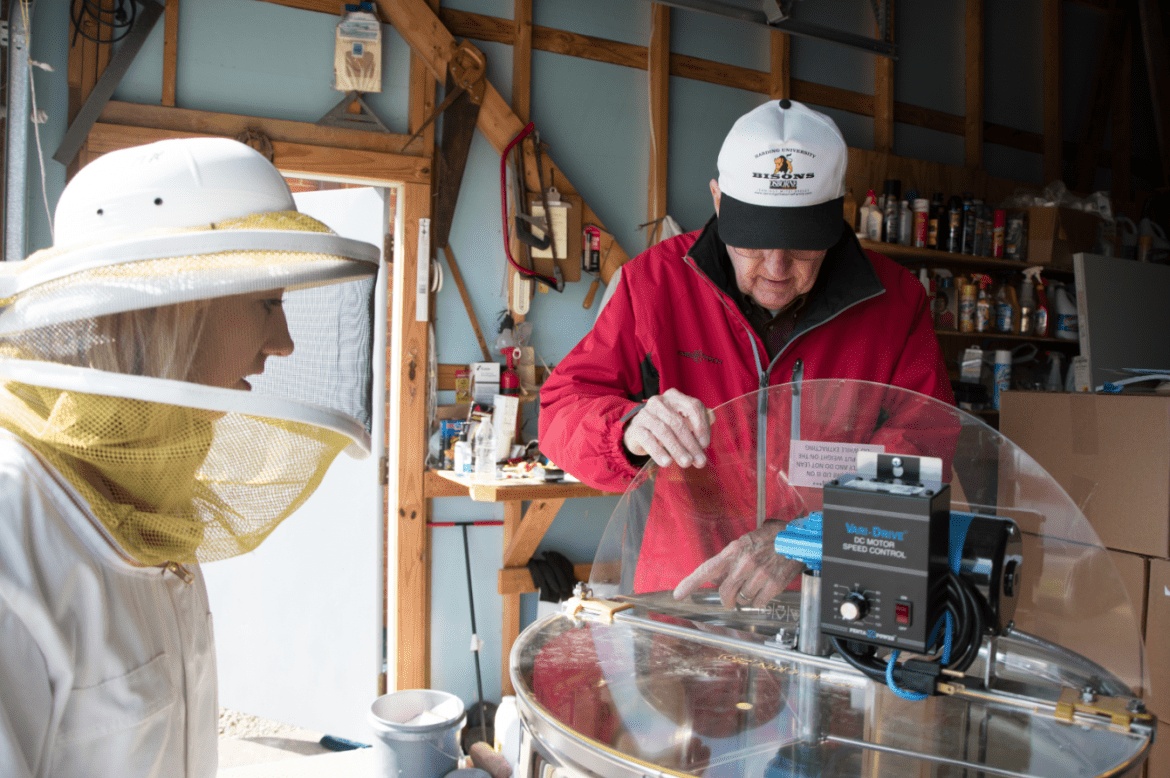Junior Ansley Watson and retired Bible professor Dr. Allan Isom might seem like an unlikely pair of friends, but in spite of their age difference, they have something major in common. Watson and Isom are both beekeepers.
Isom said he has kept bees on and off since the 70s. Last year he founded the White County Beekeepers Association so that other local beekeepers could gather to share information about their hobby.
Watson said she has kept bees for over six years, since her freshman year of high school. She and her father took a class together to learn how to raise the bees, and then she purchased her first hive.
“We went to the class together, and I was the youngest person there,” Watson said. “Old farmers were pretty much what made up this club. I learned so much from talking to them, and they were so excited that a young person had found interest in bees. I fell in love with everything that had to do with bees.”
When Watson and her family moved to a new town the next year, she was forced to relocate her bees outside the city limits because they were not allowed inside. Watson and her family discovered that the city ordinance was outdated, so they decided it was time for a change.
“The city council told my dad that they were unaware that was even a law,” Watson said. “They were interested in meeting me and wanted to know more about my hobby, so my dad made me go to the next meeting to talk to the council. I was so scared.”
At the meeting, Watson explained the impact honeybees have on agriculture and why she loved to work with them. Due to her testimony, the council ultimately decided to allow bees in town, as long as there were some safety restrictions on the hives.
Watson said she is proud of her hobby and intends to continue to keep bees for the rest of her life.
“I love honey. I love how wonderful they are for pollination. I love how amazing of creatures they are,” Watson said. “I will keep bees as long as I can have them in my yard. My dream is to already have bees before my kids are born, so it would be really cool if they grew up around bees and loved them as much as I do. If my kids are scared of them, then I will try my best to educate them on why they aren’t creatures to be scared of.”
When Isom heard about Watson’s passion for beekeeping, he said he immediately wanted to meet her.
“I met Dr. Isom my freshman year of college,” Watson said. “He was interested in keeping bees and wanted to talk to me about them. I met him and his wife at Downtown Church of Christ. They took me out to lunch, and we bonded over bees. I love how much he enjoys beekeeping as much as I do.”
Isom has a total of five beehives in the back yard of a house he rents out to tenants just across the street from campus. It is there that he suits up in his protective gear and takes care of his bees. The honey they produce can be profitable, but Isom gives it away for free.
“I give it away, trying to spread good vibes about the honeybee,” Isom said.
He said there are many misconceptions about honeybees because people tend to confuse them with their more aggressive cousins, such as bumblebees and wasps.
Isom’s love of caring for creatures has deep roots. Before deciding to major in Bible at Harding, Isom had plans to become a veterinarian.
“I’ve always enjoyed working with animals and insects,” Isom said.
He said he believes it is essential to protect the environment for future generations, and bees paly a major role in this through pollination. Without the materials necessary for bees to pollinate, they produce less honey and fertilize fewer plants.
“There is a real need to help preserve Mother Nature and Mother Earth,” Isom said. “I have seen how man has harvested timber, minerals and metals for use, leaving behind exploited areas. So I am motivated to try to help bring attention to and try to reverse this abuse of our environment for future generations. “
Isom is the president of the Beekeepers Association, which has its next meeting on April 7 at 6 p.m. at Downtown Church of Christ. Isom said that visitors are always welcome.
“Activities include having highly educational presentations at each meeting, dealing with common problems members face and recruiting younger beekeepers,” Isom said.
